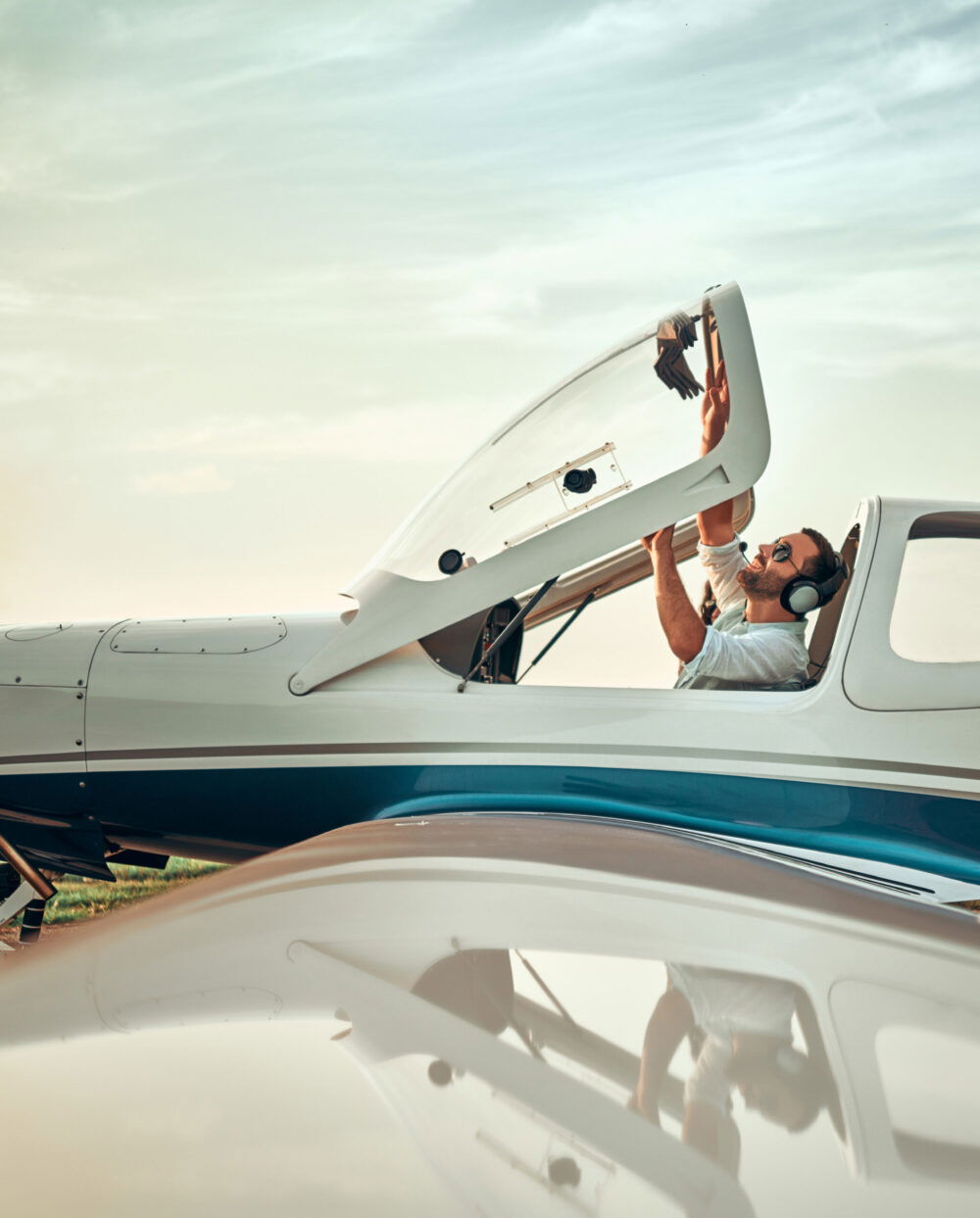
BROUGHT TO YOU BY FLYING FINANCE
Divorce can be a tumultuous period for anyone, rife with emotional and financial complexity. When you add aircraft ownership into the mix, the stakes become even higher.
If you’re a pilot who bought an aircraft for personal use or a couple that co-owns a plane for business, understanding the financial and legal ramifications during a divorce is crucial. Here are some key considerations to help navigate this intricate situation effectively.
Aircraft Asset Division
In any divorce proceeding, the division of marital assets plays a pivotal role. When it comes to aircraft, several factors come into play.
Firstly, the length of the marriage can influence asset division. In states that recognize common-law marriage, the rules might be different than in states that don’t. Understanding these nuances can help in strategizing asset division.
Another factor is the value of the aircraft. Engage an ASA Senior Accredited Appraiser to receive an accurate appraisal and determine its current market value. This valuation becomes a foundation for discussions on whether to retain or sell the asset, ensuring a just outcome in the division of marital property.
Legal Structures and Ownership
If the aircraft is co-owned, any divorce proceeding will require a determination about whether it’s a business or personal asset.
Business-use aircraft might involve different tax implications and ownership complexities than those owned for personal leisure. If a business entity like a corporation or LLC holds the aircraft, it’s important to understand how legal entity structures can impact the ownership and liability during a divorce.
That preparation can minimize personal liabilities and offer some confidentiality benefits, though it won’t always shield you from all financial responsibilities.
Financial Implications for Pilots
Pilots face unique challenges in divorce due to their complex compensation packages and retirement plans.
As such, spousal and child support can weigh heavily on pilots, especially given their high income status. Courts often demand significant spousal support payments to sustain pre-divorce lifestyles.
Additionally, pilots need to consider the division of retirement accounts such as 401(k)s and pensions. A qualified domestic relations order (QDRO) might be necessary to split these accounts, adding another layer of complexity to negotiations. Engaging with financial advisors who specialize in aviation sector divorces can help streamline this process.
Co-Ownership
Co-ownership agreements require careful scrutiny during divorce proceedings.
For aircraft co-ownerships, a formal partnership agreement should dictate terms regarding the aircraft’s use and potential sale of shareholdings. These agreements are used for resolving who maintains ownership or how proceeds from a sale are distributed in any disputes.
During negotiations, it’s also advisable to assess potential co-owner buyouts. Decisions about continuing shared ownership post-divorce or selling the aircraft entirely need thoughtful consideration, keeping all parties’ best interests in mind.
Aircraft Use and Tax Implications
For aircraft that double as business tools, tax planning is a major part of the divorce process.
Proper tax analysis ensures compliance and minimal liability when dividing assets. Different aircraft ownership structures (corporate versus personal, for instance) can result in diverse tax outcomes, including implications for Federal Excise Tax, sales tax, and deductions.
Another tax consideration involves any income generated from the aircraft, such as chartering under a co-ownership model. Understanding these income channels and their tax implications helps in formulating a divorce settlement that is fair and sustainable for both parties.
Preparation and Legal Guidance
Navigating divorce with aircraft ownership requires strategic legal and financial planning.
Pilots and aviation professionals facing a split should seek experienced legal counsel familiar with aviation law to avoid disputes and ensure an equitable distribution of assets. This includes reviewing all contracts, ownership documents, and ensuring compliance with FAA regulations for post-divorce arrangements.
Professional insight can be invaluable when you’re dealing with high-value assets like aircraft. Experienced divorce attorneys can help show you your options. Sometimes, full or partial ownership is feasible, and sometimes you can shield personal finances during disputes.
Aircraft ownership calls for meticulous attention to legal and financial details, and during divorce proceedings this is doubly true.
By planning judiciously, both parties can hopefully safeguard their interests and move toward a resolution that respects their individual and shared investments.
If you want to get started on financial planning for your private aircraft, visit FLYING Finance today, and we can help you through the process of getting preapproved today.

![Luggage in front of jet [Shutterstock]](https://flyingmag1.b-cdn.net/wp-content/uploads/sites/2/2025/09/shutterstock_2266530599-scaled.jpg?width=2560&height=1536)

